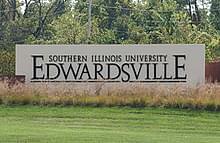Bachelor of Science [B.S] (Wildlife Conservation and Management)
STEM Course
4 years
Full Time
On Campus
$17,468 /Yr
- This program is a unique blend of agriculture and biology courses, which address all aspects of wildlife biology, conservation, and environmental management, providing students with a well-rounded skill set.
- The courses integrate field trips and laboratory experiences to provide students with hands-on learning opportunities that allow them to directly apply their education.
- Students interact with fellow students and professionals in the field through internship experiences and student organizations, which increases their networking opportunities and facilitates professional development.
- The wildlife conservation and management program at Missouri State blends course work in agriculture and biology to prepare students to help preserve natural habitats, educate others about their role in conservation, and protect endangered species and environments. Specifically, MSU’s program includes courses in forestry, soils, ecology, fisheries and wildlife management, biology, and plants. Through elective courses, students can focus their education on agronomy, animal science, or wildlife biology.
- This program is offered in cooperation with the biology department. Through the College of Agriculture, students receive a foundation of agricultural concepts and are prepared to work in careers that focus on humans, such as education and conservation, whereas the biology option focuses on wildlife biology.
- Learning outcomes:
- Students will understand the factors affecting the need to find sustainable practices for production of food, feed and fiber crops and how to implement them.
- Students will be competent in basic forest management principles and evaluation of forest stands for health, wildlife habitat and lumber use.
- Students will understand how the environment influences plant growth and crop yields, and ways to modify the environment to improve plant growth and yields.
- Students will understand how to propagate, plant, and sustainably grow, manage and harvest grain or forage crops within various environmental, marketing and financial conditions.
- Students will be able to identify soil types and how they are formed and ways to modify soil structure and drainage to reduce erosion and improve water quality.
- Students will understand how soil fertility is determined and means of improving soil fertility and adding nutrients for plant growth.
- Students will know how to identify and sustainably manage insects in various plant production systems.
- Students will have a good understanding of cellular and organism-level plant and animal structures, taxonomy and metabolic processes.
- Students will be able to identify plant vegetative and floral structures and be able to identify native and non-native herbaceous and woody plants.
- Students will understand the general principles of ecology as how they related to terrestrial and/or aquatic plant and animal conservation and management.
- Students will be able to identify species, characteristics, habitat requirements and life cycles of birds, fish and/or mammalian wildlife species.
- Students will be able to apply knowledge to solve problems related to wildlife conservation and management.
- Students will have a greater knowledge of how wildlife conservation and management relates to the economy and environment, both currently and in the future.
- Students will be able to find detailed information on a topic from print as well as online information sources.
- Students will be able to critically evaluate current events and public information related to wildlife conservation and management as being scientifically-based or opinion-based and contribute to the knowledge base of information.
- Students will be able to work with others to coordinate activities that achieve group/team objectives.
- Students will be able to write in a style appropriate for technical or informative publications for various audiences related to wildlife conservation and management.
Read More
Important Dates
| Event | Application Date |
|---|---|
| Application Deadline For 2024 Intake | |
| Application Deadline For 2024 Intake | |
Tuition Fees
| Year | 1st Year Fees |
|---|---|
| Tuition Fees | $17468 |
Other Expenses
| Head | Avg Cost Per Year |
|---|---|
| Living Costs | $9284 |
| Health Insurance | $1698 |
| Books and supply | $1200 |
| Total Cost | $12182 |
Eligibility & Entry Requirement
Academic Eligibility:
- Students must have completed a full sequence of studies that would qualify them for admission to university-level work in their own country. Additionally, freshman international students must have completed a recognized secondary program comparable to U.S. high school graduation, and have academic records demonstrating achievement comparable to the achievement required by the domestic Freshman Admission Requirements. Completed course work must be equivalent to the twelve-year program in the United States. To qualify as official, documents must be sent to the Missouri State Office of International Services directly from the issuing institution.
- Students are required to submit SAT or ACT scores.
- Students may not need an ACT or SAT score to be admitted. If they have a high school cumulative GPA of 3.25 or higher, then students meet the selection index requirements, and a test score is not needed for admission purposes.
- Proof of student’s proficiency in English is required if their primary language is not English. Persons who have completed one or more years of university-level study in the U.S. may be exempt at the discretion of the International Services Office. International students hailing from non-English speaking countries must submit TOEFL/IELTS... or any equivalent test score reports to meet the English proficiency requirement.
Scores Required
Similar Programs
| Program | Important Date | Total Fees | Median Exams Score | Action |
|---|---|---|---|---|
| USD 17,468 /Yr |
|
Scholarship Grants & Financial Aids
| Name | Scholarship Per Student | Level of Study | Type | |
|---|---|---|---|---|
| Collegedunia $150 Scholarship Program | Scholarship per student$ 150/Yr$150 | Level Of StudyBachelor | TypeMerit-Based | |
| Comindware Scholarship | Scholarship per student$ 4,000/Yr$4,000 | Level Of StudyApprenticeship | TypeMerit-Based | |
| YouAreWelcomeHere Scholarships | Scholarship per studentVariable Amount | Level Of StudyApprenticeship | TypeTuition-Fee-Waiver | |
| Scholarships in California | Scholarship per student$ 1,000/Yr$1,000 | Level Of StudyApprenticeship | TypeCollege-Specific | |
| Go Clean Scholarship | Scholarship per student$ 3,500/Yr$3,500 | Level Of StudyBachelor | TypeMerit-Based | |
| R&D Systems Scholarship | Scholarship per student$ 1,500/Yr$1,500 | Level Of StudyBachelor | TypeMerit-Based |
Similar Colleges


Southern Illinois University
Edwardsville, Illinois


University at Albany
Albany, New York


Northern State University
Aberdeen, South Dakota


Abilene Christian University
Abilene, Texas
.jpeg?h=143&mode=stretch)

Ohio Northern University
Ada, Ohio


University of South Carolina
Aiken, South Carolina


University of Akron
Akron, Ohio


State University of New York Polytechnic Institute
Albany, New York


University of New Mexico
Albuquerque, New Mexico

















.jpeg?h=40&w=40&mode=stretch)















Comments